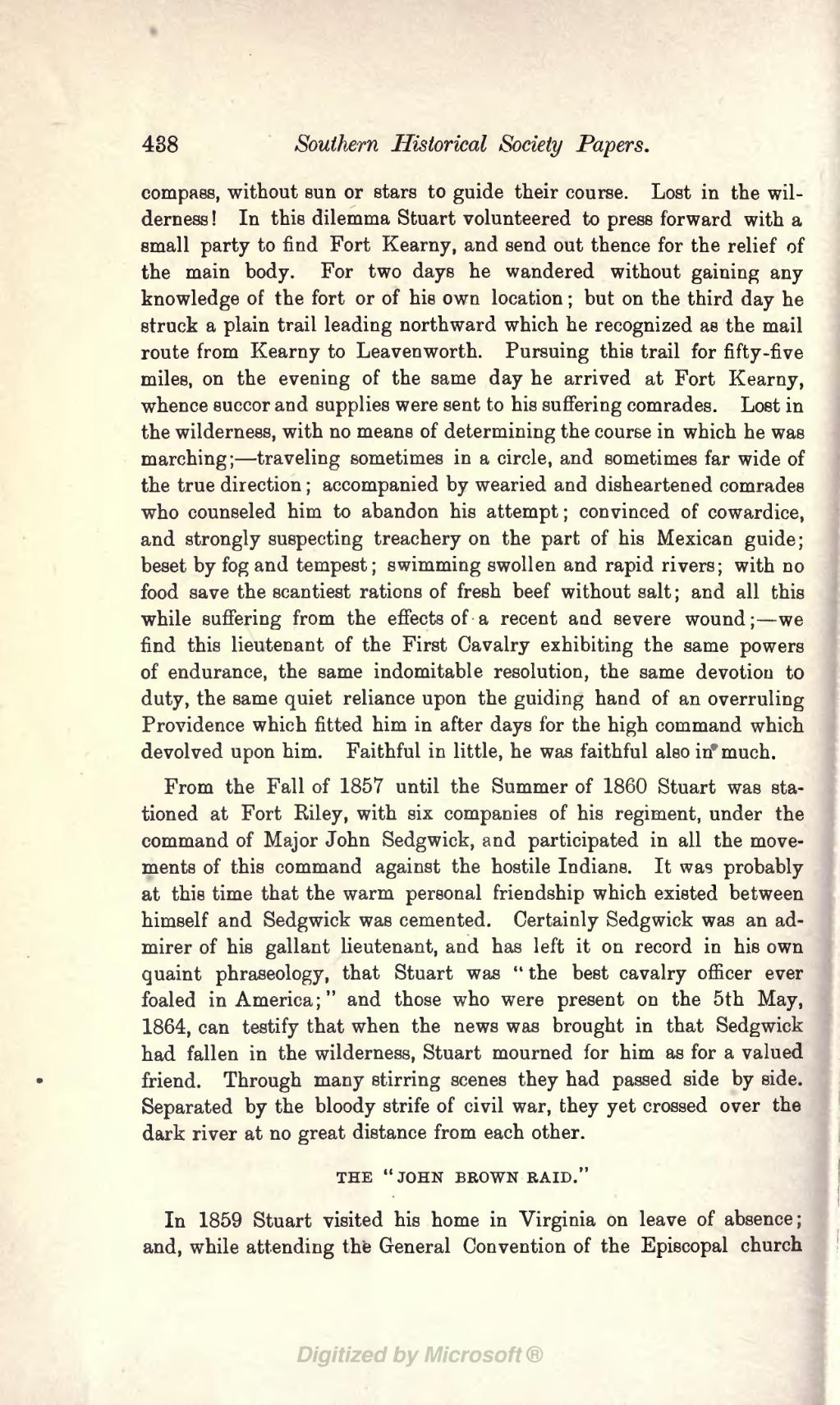compass, without sun or stars to guide their course. Lost in the wilderness! In this dilemma Stuart volunteered to press forward with a small party to find Fort Kearny, and send out thence for the relief of the main body. For two days he wandered without gaining any knowledge of the fort or of his own location; but on the third day he struck a plain trail leading northward which he recognized as the mail route from Kearny to Leavenworth. Pursuing this trail for fifty-five miles, on the evening of the same day he arrived at Fort Kearny, whence succor and supplies were sent to his suffering comrades. Lost in the wilderness, with no means of determining the course in which he was marching;—traveling sometimes in a circle, and sometimes far wide of the true direction; accompanied by wearied and disheartened comrades who counseled him to abandon his attempt; convinced of cowardice, and strongly suspecting treachery on the part of his Mexican guide; beset by fog and tempest; swimming swollen and rapid rivers; with no food save the scantiest rations of fresh beef without salt; and all this while suffering from the effects of a recent and severe wound;—we find this lieutenant of the First Cavalry exhibiting the same powers of endurance, the same indomitable resolution, the same devotion to duty, the same quiet reliance upon the guiding hand of an overruling Providence which fitted him in after days for the high command which devolved upon him. Faithful in little, he was faithful also in much.
From the Fall of 1857 until the Summer of 1860 Stuart was stationed at Fort Riley, with six companies of his regiment, under the command of Major John Sedgwick, and participated in all the movements of this command against the hostile Indians. It was probably at this time that the warm personal friendship which existed between himself and Sedgwick was cemented. Certainly Sedgwick was an admirer of his gallant lieutenant, and has left it on record in his own quaint phraseology, that Stuart was "the best cavalry officer ever foaled in America;" and those who were present on the 5th May, 1864, can testify that when the news was brought in that Sedgwick had fallen in the wilderness, Stuart mourned for him as for a valued friend. Through many stirring scenes they had passed side by side. Separated by the bloody strife of civil war, they yet crossed over the dark river at no great distance from each other.
THE "JOHN BROWN RAID."
In 1859 Stuart visited his home in Virginia on leave of absence; and, while attending the General Convention of the Episcopal church
